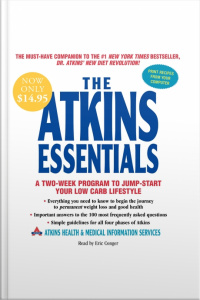Spanish In A Minute!
- Author: Vários
- Narrator: Vários
- Publisher: Podcast
- Duration: 57:47:58
- More information
Informações:
Synopsis
Learn Spanish in one-minute sound bytes. A series of short, fun, audio lessons which start from zero, and follow a sequence that will help you build your language, step by step.
Episodes
-
Episode 20: -ER Verbs
18/01/2011 Duration: 01minToday we're going to look at -ER verbs. I eat - yo como, You eat - tú comes, Formal you/he/she eats - usted/él/ella come, We eat - nosotros/nosotras comemos, You (all) eat - vosotros/vosotras coméis, Formal you all/they eat - ustedes/ellos/ellas comen
-
Episode 19: Numbers from 30 - 40
14/12/2010 Duration: 01minNumbers from 30 - 40: Thirty - treinta, Thirty-one - treinta y uno, Thirty-two - treinta y dos, Thirty-three - treinta y tres, Thirty-four - treinta y cuatro, Thirty-five - treinta y cinco, Thirty-six - treinta y seis, Thirty-seven - treinta y siete, Thirty-eight - treinta y ocho, Thirty-nine - treinta y nueve, Forty - cuarenta
-
Episode 18: Describing people
07/12/2010 Duration: 01minHere are some words to describe people – adjectives – remember how they agree with the noun? Tall - alto (masculine) / alta (feminine), Short - bajo/baja, Blonde - rubio/rubia, Dark-haired - moreno/morena, Attractive - guapo/guapa
-
Episode 17: Food
30/11/2010 Duration: 01minAre you in the mood for some Spanish tapas? The waitress might say: ¿qué desea? - what would you like? Una tapa de jamón ibérico, por favor - that’s Spanish ham. ¿Algo más? - something else? ¡La tortilla de patatas se ve rica! - the Spanish omelette looks good! Aquí tiene - here you are. Muchas gracias. ¡Que aproveche! - Enjoy!
-
Episode 16: 'AR' verbs
23/11/2010 Duration: 01minNow we get to the nitty-gritty – VERBS! Here is how to conjugate a regular AR-verb in the present tense. Hablar – to speak. Listen to the endings: I speak - yo hablo, You speak - tú hablas, Formal you/he/she speaks - usted/él/ella habla, We speak - nosotros/nosotras hablamos, You (all) speak - vosotros/vosotras habláis, Formal you all/they speak - ustedes/ellos/ellas hablan
-
Episode 15: Professions
16/11/2010 Duration: 01minLet's ask what a person does: ¿qué haces? What if you’re an architect? - soy arquitecta/o. Oh, but perhaps you’re a carpenter? - soy carpintero/a. Ok, you might be a social worker! - soy trabajador/a social. Like colours, the ENDINGS of the names of SOME professions don't change for males and females, eg: -ISTA. For example: Soy dentista, soy artista (él es artista, ella es artista). What if you’re the boss? (and this one’s irregular): ¡soy el jefe! (masculine) or ¡soy la jefa! (feminine)
-
Episode 14: Numbers from 20 to 30
02/11/2010 Duration: 01minNumbers 20 - 30: Twenty - veinte, Twenty-one - veintuno, Twenty-two - veintidós, Twenty-three - veintitrés, Twenty-four - veinticuatro, Twenty-five - veinticinco, Twenty-six - veintiséis, Twenty-seven - veintisiete, Twenty-eight - veintiocho, Twenty-nine - veintinueve, Thirty - treinta
-
Episode 13: Clothes and colors
26/10/2010 Duration: 01minLet’s give the clothes some colours. In Spanish the colour (adjective) has to agree with the clothes (nouns) in gender and number. So the black overcoat is: el abrigo negro, The black shirt is: la camisa negra, The yellow pants are: los pantalones amarillos, And the white t-shirts? las camisetas blancas. Some colours don’t have a masculine-O, or feminine-A ending. Remember green, verde, and blue, azul?, El abrigo verde, la camisa verde, los pantalones azules, las camisetas azules.
-
Episode 12: Clothes
19/10/2010 Duration: 01minWhen you want to buy a coat you say: Quería un abrigo, por favor, If I want to buy a shirt: quería una camisa, por favor, If I want to buy some trousers: quería unos pantalones, por favor, I want to buy some t-shirts: quería unas camisetas. What if I want to say: you look great!: ¡qué guapo! (to a boy) or ¡qué guapa! (to a girl)
-
Episode 11: Colors
12/10/2010 Duration: 57h00sLet’s learn the names of some colours: Red - rojo, Yellow - amarillo, Black - negro, White - blanco, Green - verde, Blue - azul, Grey - gris, Brown - marrón
-
Episode 10: Ordering drinks
05/10/2010 Duration: 01minTo order something in a bar we use: Me da ... Por favor, me da una cerveza, por favor - can I have a beer please?, Me da un vino tinto, por favor - can I have a red wine please?, Me da un vino blanco, por favor - can I have a white wine please?, Me da agua con gas, por favor - I’d like a sparkling mineral water, Me da agua sin gas, por favor - I want “still water”, Me da un café, por favor - give me a coffee please, If I want an orange juice, and I’m in Spain: me da un zumo de naranja, por favor, If I wanted an orange juice in Hispanic America?, Me da un jugo de naranja, por favor. Un jugo de naranja. ¡Salud! (Cheers!)
-
Episode 9: What food you like
28/09/2010 Duration: 01minTo ask someone if they like something we say: ¿te gusta? Sí, me gusta - yes. I like it, ¡Sí me gusta mucho! - yes, I like it a lot, Sí, me encanta - yes, I love it, If there are more than one thing liked: sí, me gustan, sí, me encantan, ¡Mmm, qué rico! - mmm, how yummy!
-
Episode 8: Telling the time
21/09/2010 Duration: 01minTo ask the time you say: ¿Qué hora es? If it’s two o’clock: son las dos, If it’s five o’clock: son las cinco, If it’s half past three: son las tres y media, If it’s a quarter past six: son las seis y cuarto, And what about a quarter to seven? son las siete menos cuarto, And if it’s one o’clock: es la una, en punto (on the dot!).
-
Episode 7: Numbers 11 to 20
14/09/2010 Duration: 01minNumers 10 - 20: Ten - diez, Eleven - once, Twelve - doce, Thirteen - trece, Fourteen - catorce, Fifteen - quince, Sixteen - dieciséis, Seventeen - diecisiete, Eighteen - dieciocho, Nineteen - diecinueve, Twenty - veinte
-
Episode 6: Numbers one to ten
07/09/2010 Duration: 01minNumbers 1 - 10: One - uno, Two - dos, Three - tres, Four - cuatro, Five - cinco, Six - seis, Seven - siete, Eight - ocho, Nine - nueve, Ten - diez
-
Episode 5: What you do
31/08/2010 Duration: 01minTo ask what someone does: ¿Qué haces?, Soy profesor/a - I’m a teacher, To ask where you work: ¿dónde trabajas?, Trabajo en la ciudad - I work in the city, ¿Estudias o trabajas? - do you study or work?, To say I work: (yo) trabajo, To say I study: (yo) estudio, ¿Qué estudias? - what do you study?, Estudio español - I study Spanish.
-
Episode 4: Where you live
24/08/2010 Duration: 01minTo ask where someone lives we say: ¿Dónde vives?, Vivo en Australia - I live in Australia, ¿En qué ciudad? - in which city?, En Melbourne - I live in Melbourne, To ask someone who they live with: ¿con quién vives?, ¡Vivo con mi gato! - I live with my cat!
-
Episode 3: Where you're from
17/08/2010 Duration: 01minTo ask where someone is from we say: ¿De dónde eres? or ¿de dónde es usted? (formal), Soy de Australia (I'm from Australia), or Soy australiano/a (I'm Australian)
-
Episode 2: Asking names
10/08/2010 Duration: 01minTo ask someone’s name we say: ¿Cómo te llamas? or ¿Cómo se llama usted? (formal), Me llamo Craig - My name is Craig, ¿Y tú? - And you? ¡Encantado! - Pleased to meet you (for a boy) or ¡Encantada! (if you’re a girl).
-
Episode 1: Greetings
03/08/2010 Duration: 57sTo greet people we say: Hola or ¿Qué tal? (Informal), Buenos días (in the mornings), Buenas tardes (in the afternoon), Buenas noches (at night time), To say goodbye we say: ¡Hasta la vista!, hasta luego or adiós.














